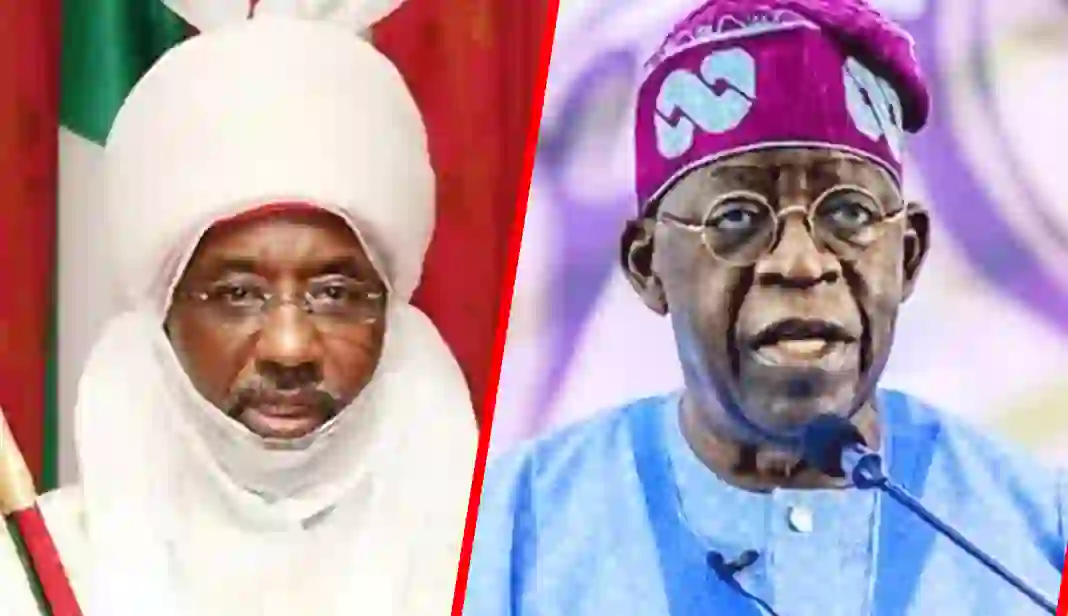Tensions have escalated between the Federal Government and former Central Bank Governor, His Highness Muhammadu Sanusi II, following the latter’s public declaration of unwillingness to support or advise the current administration on economic matters. The government’s sharp response came through Minister of Information and National Orientation, Mohammed Idris, who dismissed the need for Sanusi’s endorsement of their policies.
Speaking at the 21st Memorial Lecture of Chief Gani Fawehinmi in Lagos, Sanusi, who now serves as Emir, made pointed remarks about the current economic situation, suggesting that while he could offer insights into the nation’s economic challenges, he would deliberately withhold his expertise. The former CBN governor’s stance was particularly striking given his background in economic policy and financial management.
“They don’t even have people with pedigree that can come and explain to the people what they are doing,” Sanusi stated during his address, adding that while the current economic situation partly stems from “decades of irresponsible management,” he would reserve his full analysis for a later time. His comments highlighted a growing rift between the traditional institution and the federal government over economic policy direction.
The government’s response, issued through a strongly worded statement titled “We don’t need Sanusi’s stamp of approval for our laudable policies,” characterized the Emir’s position as potentially motivated by “shift in loyalty” rather than genuine concern for national economic welfare. The administration called on the monarch to elevate his perspective above personal interests and partisan considerations.
This public disagreement underscores deeper tensions between traditional authorities and government economic reforms. Sanusi, known for his outspoken criticism of economic policies during previous administrations, including during his tenure as Central Bank Governor, has notably shifted his approach with the current government, explicitly stating his refusal to offer guidance despite acknowledging the predictable and potentially avoidable nature of current challenges.
The exchange raises important questions about the role of traditional leaders and former government officials in national economic discourse. While Sanusi’s expertise in financial matters is widely acknowledged, his decision to withhold insights based on personal relationships with current administration officials has drawn criticism from various quarters.
Mohammed Idris’s response emphasizes the government’s commitment to pursuing its economic agenda regardless of individual endorsements. The administration’s position suggests confidence in its current policy direction while highlighting the complex dynamics between traditional institutions and modern governance structures in Nigeria.
The broader context of this disagreement reflects ongoing debates about the effectiveness of current economic reforms and the role of various stakeholders in shaping and critiquing government policy. As Nigeria grapples with significant economic challenges, the tension between experienced voices like Sanusi’s and the current administration’s approach to reform implementation continues to evolve.
This public dispute also highlights the delicate balance between personal relationships and professional responsibilities in Nigeria’s political landscape. Sanusi’s admission that his reluctance to engage stems from perceived unfriendly behavior by “friends” in government adds a personal dimension to what might otherwise be purely policy-based disagreements.
As the situation develops, the impact of this high-profile disagreement on public perception of government economic policies remains to be seen. The administration’s dismissal of the need for Sanusi’s approval, while calling for a focus on the greater good, suggests a complex relationship between traditional authority, expertise, and government policy implementation in contemporary Nigeria.



